
WHILE discussing Bengalese, authors often refer to the sharp-tailed finch and the striated finch – and the word finch is often replaced with mannikin or munia, which are interchangeable. However, the convention is normally to use the word “mannikin” for African and New Guinea Lonchura species and “Munia” for most Asian species.
Striated and sharp-tailed finches are not currently regarded as being separate species, with the striated finch from India being regarded as the nominate sub-species of the white-rumped munia (Lonchura striata) and the sharp-tailed finch from the Burma region being the subspecies L. striata acuticauda. It is now widely acknowledged that the Bengalese finch was developed in Japan from the white-rumped, or white-backed munia, probably the Chinese L. striata swinhoei. Confusingly, the Chinese white-rumped munia has also been referred to by the common names of Chinese striated munia and Swinhoe’s sharp-tailed munia (Munias and Mannikins by Robin Restall).
A few years ago, I decided to investigate the origins of the Bengalese finch by searching online for books, articles and scientific studies. Subsequently, I was able to download some of the older publications and I bought several secondhand books.
My oldest, a download of The Illustrated Book of Canaries and Cage Birds, British and Foreign by W.A. Blakston, W. Swaysland and August F. Weiner (the latter wrote the foreign bird section), has a handwritten inscription dated Christmas 1887.
When discussing the sharp-tailed and striated finches, Weiner indicates that it was not clear which species was used to develop the white Bengalese in Japan and the associated variegated colours.
この記事は Cage & Aviary Birds の September 25, 2019 版に掲載されています。
7 日間の Magzter GOLD 無料トライアルを開始して、何千もの厳選されたプレミアム ストーリー、9,000 以上の雑誌や新聞にアクセスしてください。
すでに購読者です ? サインイン
この記事は Cage & Aviary Birds の September 25, 2019 版に掲載されています。
7 日間の Magzter GOLD 無料トライアルを開始して、何千もの厳選されたプレミアム ストーリー、9,000 以上の雑誌や新聞にアクセスしてください。
すでに購読者です? サインイン
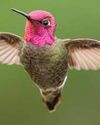
The World's Best-Known Hummingbird?
Intensively studied, the gem-like Anna’s hummingbird is a welcome visitor to the gardens of America’s most populous state: California. Bill Naylor investigates its life history
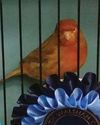
The charm of the English Cinnamon
Despite its long and complicated history, the true Cinnamon canary is still with us – in the hands of a tiny group of breeders. DONALD SKINNER-REID reckons it deserves wider appreciation
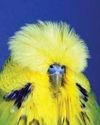
Spangles: a personal overview
FRED WRIGHT relates a budgie story of over-exploitation, consequent problems and abundant potential for the future

New converts to old breeds
Old and rare canaries have a reputation for adding fresh interest and challenge to the hobby. PETE HOOK and NICK JOY agree, and explain the birds’ charm to Dave Brown

Themed aviaries are a hit with the public at annual Stafford show
DECORATIVE AVIARY DISPLAYS from a CBS and an online bird keeping advice group were voted in the top three by visitors for the inaugural Stafford Aviary Competition.
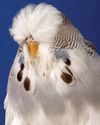
Pieds with potential
More than just a lesser variety, the dominant pied will introduce challenge and change into most studs, reckons CLIVE WAKEMAN. Here he discusses pairings to try and others to avoid

Club News
Welcome to the club and show pages – the bit that’s all about you Results: convention, specialist & rare and Breeder of the Year
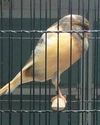
Canaries Month by Month:
With Christmas around the corner, BRIAN KEENAN is well into his winter programme, and reckons he might deserve a nice outcross
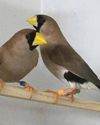
Smart Choice, Docile Nature
Dave Brown welcomes the masked grassfinch to his birdroom and shares advice on this lovely Australian species
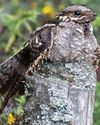
The truth about the ‘flying toad'
Odd local names and weird superstitions can’t hide the beauty and elegance of the nightjar, a species that has made a fascinating subject in a few zoo collections, reveals BILL NAYLOR